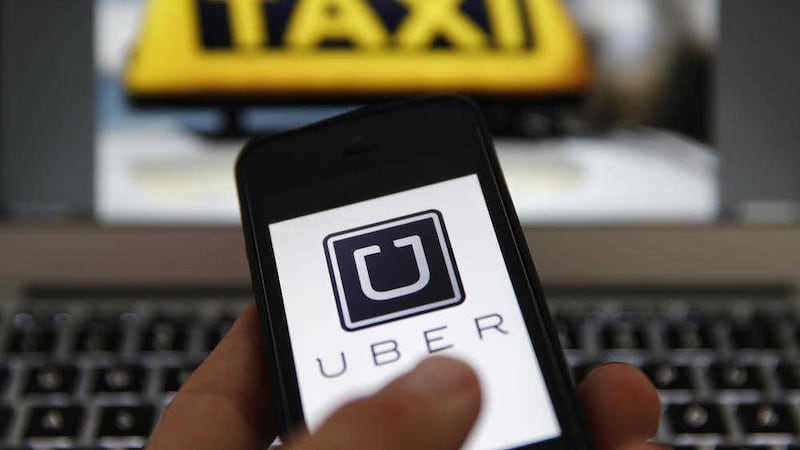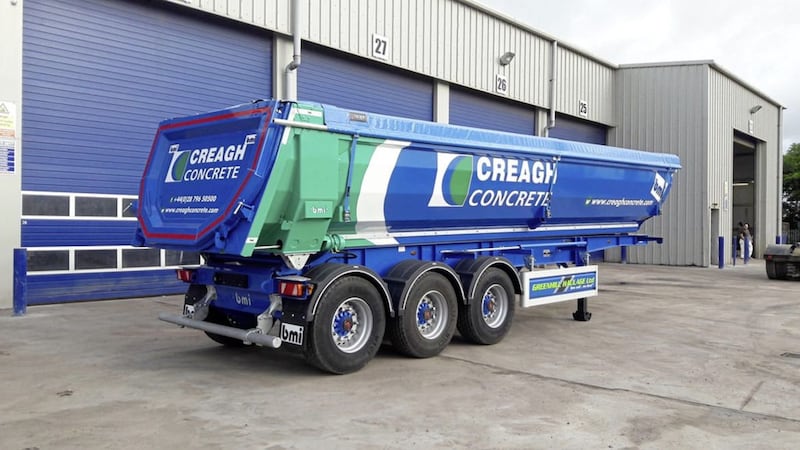THE brand name Uber is closely associated with digital disruption.
Valued at over $50 billion, according to some estimates, Uber’s app-enabled taxi service has put disruptive ‘convenience tech’ on the map, and spawned a myriad of Uber-style businesses.
If you haven’t experienced Uber yet, it works like this. You tap your phone screen, and a taxi soon appears. The Uber app tells you the expected price, and when you arrive there's no hassle with cash, cards, tips or receipts – Uber’s app automatically debits your account and issues a digital receipt.
I imagine Belfast-based taxi firms will not have been overly pleased to hear last week that Uber is coming to Belfast, as it could significantly disrupt and change the city’s taxi scene.
But an even bigger digital disruption could be coming down the line in transport.
This is based on a personal blog post by ‘futurist’ Zach Kanter. He is predicting that autonomous cars will destroy 10million jobs and reshape the economy by 2025.
How does he come to this conclusion, given that many think the transition to driverless vehicles will come slowly over the coming few decades?
He reckons that there is widespread underestimation regarding the likely uptake of autonomous cars. He thinks they will be commonplace by 2025 and have a near monopoly by 2030. He says the sweeping change they will bring will eclipse every other innovation our society has experienced. That’s a big statement!
The benefits, he predicts, will include greater efficiency in society, greater safety on the roads (saving thousands of lives), and significant environmental benefits.
Indeed, Kanter points out that the progess towards driverless cars is already starting to happen. Elon Musk, Tesla Motor’s CEO, says that his company’s latest models will be able to self-drive 90 percent of the time. According to Bloomberg News, GM’s 2017 models will feature “technology that takes control of steering, acceleration and braking at highway speeds of 70 miles per hour or in stop-and-go congested traffic.”
Google and Tesla predict that fully-autonomous cars – what Musk describes as “true autonomous driving where you could literally get in the car, go to sleep and wake up at your destination” – will be available to the public by 2020 (in the US anyway).
PwC predicts that the number of vehicles on the road will be reduced by 99 per cent due to autonomous cars; a drop from 245m to just 2.4m vehicles. Imagine the fall-out for all kinds of industries, including oil companies, insurance businesses, mechanics, and tyre manufacturers.
In Northern Ireland, where car ownership is high, public transport is not as advanced as other societies, we have a relatively dispersed population, and we have a high dependence on imported fossil fuels, all of this could bring huge benefits.
And we don’t have huge dependence on the motor industry for employment – so there isn’t the same downside for Northern Ireland from that perspective as there would be for Germany, Japan and the US for instance, which have huge car-making industries.
It could reduce our dependence on imported fossil fuels, make it more efficient to transport manufactured products out of Northern Ireland to other markets, and make our society more mobile and agile.
Of course only time will tell if Kanter is overstating the pace at which change will come and the magnitude of the impact. But either way, change is coming, and it is an uber-exciting and/or daunting prospect, depending on which was you look at it.
:: Patrick McAliskey is managing director of Novosco, an indigenous Northern Ireland managed cloud company with offices in Belfast, Dublin and Manchester. It employs over 120 people and works for leading organisations across the UK and Ireland, including many of Northern Ireland’s top companies, UK health trusts, councils and other organisations. It has been ranked one of the top companies to work for in the UK 2015 by The Sunday Times.








